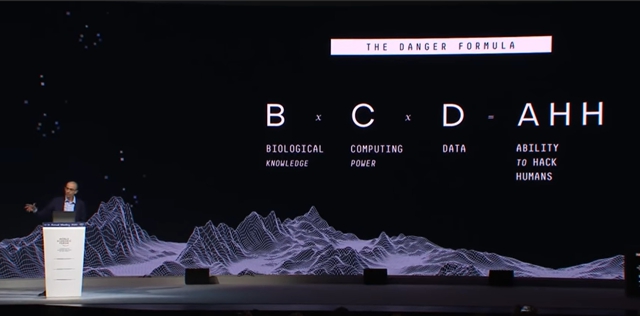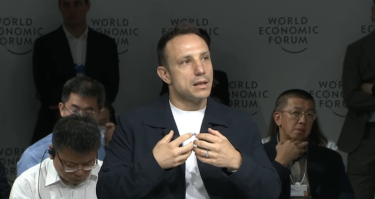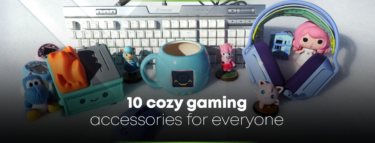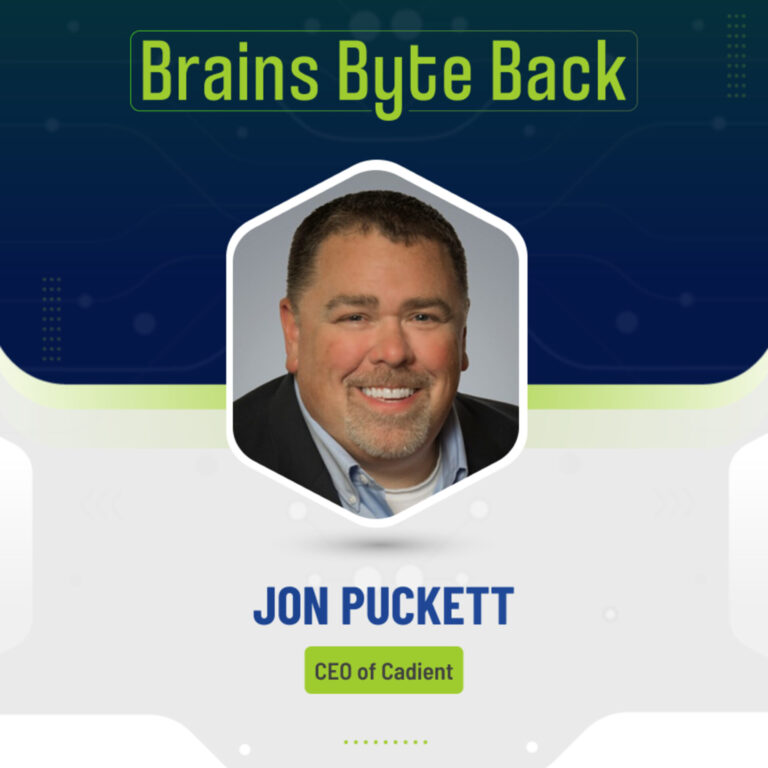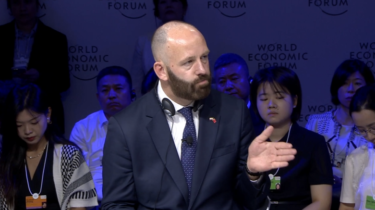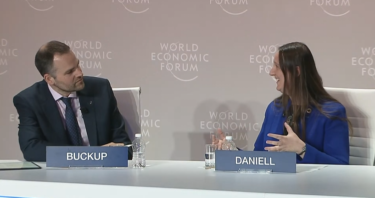While AI and biotech are giving humans godlike abilities to re-engineer life itself, humans are still hackable animals, and the threat of digital dictators lording over data colonies is a realistic threat, according to insights from the World Economic Forum.
“We are no longer mysterious souls; we are now hackable animals”
In his speech on How to Survive the 21st Century historian Yuval Harari outlined on Wednesday how technology could be used to alter the future of humanity in extremely dystopian ways.
These include the creation of a “useless class” of humans, the rise of digital dictatorships with their new forms of totalitarianism, and biohacking humans to the point where they either become godlike, or they lose all of their spirituality.
Some of Harari’s predictions are already taking place now.
The US and China are in the midst of a technological arms race. Each side is developing incredibly intrusive technology.
China has created an “Orwellian surveillance state” while the Pentagon has been researching how to biohack soldiers to give them special abilities, and big tech companies are always pushing the boundaries of what is ethical in the pursuit of innovation.
What we face, according to the historian, is the possibility of having a 21st Century Stalin.
What would give rise to a 21st Century Stalin would be a 21st Century problem of inequality — specifically people who become irrelevant in the eyes of the powerful.
“Those who fail in the struggle against irrelevance would constitute a new ‘useless’ class”
Harari warned that AI in the 21st Century could create a “useless class” of people who will have become irrelevant to the economic and political system through automation.
“Whereas in the past humans had to struggle against exploitation, in the 21st Century the really big struggle will be against irrelevance. And it’s much worse to be irrelevant than to be exploited.
“Those who fail in the struggle against irrelevance would constitute a new ‘useless’ class. People who are useless — not from the viewpoint of their friends and family of course — but useless from the viewpoint of the economic and political system.
“This useless class will be separated by an ever-growing gap from the evermore powerful elite.
“The AI revolution might create an unprecedented inequality — not just between classes, but also between countries.”
“We are already in the midst of an AI arms race with China and the USA leading the race and most countries being left far, far behind.
“Unless we take action to distribute the benefits and power of AI between all humans, AI will likely create immense wealth in a few high tech hubs while other countries will either go bankrupt or will become exploited data colonies.”
With data colonies comes the rise of digital dictatorships.
“The rise of digital dictatorships that will monitor everyone all the time”
‘Authoritarianism is easier in a world of total visibility’: WEF report
“Alongside inequality, the other major danger we face is the rise of digital dictatorships that will monitor everyone all the time,” Harari continued.
“This danger can be stated in the form of a simple equation, which I think might be the defining equation of life in the 21st Century — B x C x D = AHH — which means Biological knowledge multiplied by Computing power multiplied by Data equals the Ability to Hack Humans.”
“We humans should get used to the idea that we are no longer mysterious souls; we are now hackable animals,” he added.
When you think about how big tech companies like Google are looking to conquer the healthcare industry, what is it that these companies are gaining access to if not biological knowledge and data coupled with computing power?
“The power to hack human beings can of course be used for good purposes like provided much better healthcare,” said Harari, adding, “but if this power falls into the hands of a 21st Century Stalin, the result will be the worst totalitarian regime in human history, and we already have a number of applicants for the job of 21st Century Stalin.”
Harari then made an appeal to the Davos audience, so that the elitists in attendance would get the message that not even they would be safe from a digital dictatorship.
“If we allow the emergence of such totalitarian regimes, don’t think that the rich and powerful in places like Davos will be safe. Just ask Jeff Bezos,” he said.
“In Stalin’s USSR the State monitored members of the Communist elite more than anyone else. The same will be true of future total surveillance regimes.”
“It’s in the interest of all humans, including the elites, to prevent the rise of such digital dictatorships.”
“AI and biotechnology will give us god-like abilities to re-engineer life”
The Story Of Artificial Intelligence As Told By The Ancient Mayan Popol Vuh
Humans, according to Harari, could be completely left in the dark in all decision making processes because we won’t have a clue how our systems operate.
“What will be the meaning of human life when most decisions are taken by algorithms? We don’t even have philosophical models to understand such an existence,” he said.
Big tech companies tell us what is true, how things work, what to buy, and where to eat, and we will never be able to understand the complexity of how their algorithms arrive at their conclusions.
Therefore, people like Elon Musk tell us that if we can’t beat ’em, join ’em. In other words, we should merge our bodies and our minds with AI.
Harari, again, warned that in becoming godlike, we may lose sight of what it means to be human.
“In the coming decades AI and biotechnology will give us godlike abilities to re-engineer life and even to create completely new life forms,” said the historian.
While we might not have a philosophical framework to tackle this scenario, we do have mythology. If we look to creation myths around the world, we can see how “the gods” struggled in the exact same way with their artificial creations (humans).
For example, preserved in the Mayan holy book, the Popol Vuh, is the story of how the creators struggled in their quest to build the perfect specimen through many stages of trial and error.
When philosophizing over AI, the Popol Vuh reminds us that we must first determine why we are creating it. In the case of the gods, humans were created for the sole purpose of serving and worshiping their creators.
Over time, the gods lost control of their creations and had to kill off most of the population, just like the flood in the Old Testament.
However, their human creations were resilient and quickly rebounded. They eventually expelled their creators, and humans became lords over the Earth.
What will happen if and when humans merge with their creations?
“In using our new divine powers of creation, we might make mistakes on a cosmic scale”
AI and Spirituality: Toward the recreation of the mythical, soulless Golem
Harari said, “After four billion years of organic life shaped by natural selection we are about to enter a new era of inorganic life shaped by intelligent design — our intelligent design is going to be the new driving force of the evolution of life.
“In using our new divine powers of creation, we might make mistakes on a cosmic scale.
“Governments, corporations, and armies are likely to use technology to enhance human skills that they need like intelligence and discipline while neglecting other human skills like compassion, artistic sensitivity, and spirituality,” he added.
This is already happening in the United States for military purposes through the Defense Advanced Research Projects Agency (DARPA). DARPA has several research programs aimed at biohacking soldiers, such as the Measuring Biological Aptitude program, which looks to characterize and enhance relevant phenotypes across a range of skills.
Additionally, DARPA has another program to turn human skin into a mosquito repellent.
What could happen if humans were re-engineered to enhance certain traits at the expense of others?
“The result, according to Harari, “might be a race of humans who are very intelligent and very disciplined, but lack compassion, lack artistic sensitivity, and lack spiritual depth.”
What happens to decision making when humanity merges with machine? What new forms of life will we be creating if not modern day Golems of Jewish mysticism?
Harari says that the technological challenges facing the 21st Century are global ones that need global solutions without destroying nationalism — a sort of World Cup of tech governance where everybody competes and cheers for their home team, but also where everybody plays by the same universal rules.



